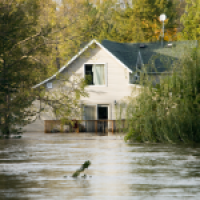In an article I just read by Margaret Wheatley, she asks two critical questions.
- Is it a time of increasing economic and political instability, of growing divisiveness and fear, or failing systems and dying dreams?
- Is it a time of new possibilities, of great examples of hope, of positive human evolution, of transformation?
Which question in your view predominates, and of course, the policies and innovations, research and development needed are entirely different under these two scenarios. It makes me wonder if we unconsciously flip between the two scenarios, often landing in the middle of mediocrity?
The next questions we need to ask ourselves, especially societal leaders are what are our underlying assumptions? How well are measures of efficiency and effectiveness contributing to human well-being, unrestrained growth, that hierarchy and increasing larger degrees of scale are the most efficient form of organizing, the concept of the creative class, rather than the belief that creativity has potentiality in all of us?
Wheatley argues that new leadership is a central and pressing challenge of our time. Modern day problems require unprecedented forms of collaboration and trans-disciplinary research methods, both of which demand the courage to be different and innovation. You may wish to refer to a paper we wrote called, All Things Counter Spare and Strange. Why Human Beings are do Bad at Difference? and one of our HEADTalks videos by Stephen Huddart.
How do professionals and practitioners share knowledge and ideally, connect with leading edge research? Through peer-to-peer learning exchanges and communities of practice? Why are they important, because it is through them that workers can increase their core competencies, their knowledge and innovation, and I believe enhance their agency to act. Wheatley argues that it is critically important for pioneering leaders to be aware of their broader communities of practice, and I would argue a key role for Canadian foundations should be in connecting the dots between them and the research community.
- Log in to post comments



CRC Comments